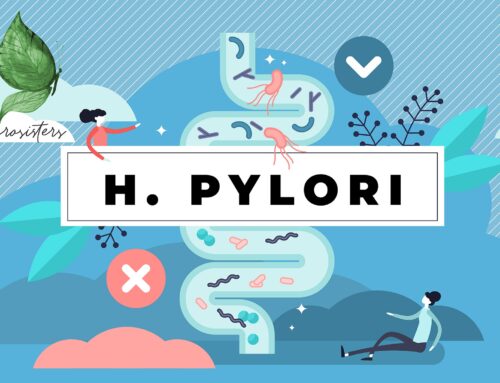As I have mentioned previously on this blog, I believe Hashimoto’s – the most common form of hypothyroidism – is a silent epidemic that affects far more people in this world than we realize. Current estimates suggest up to 20 million Americans have some form of thyroid disease, and 90% of those sufferers have an autoimmune condition, most likely Hashimoto’s.

When I discover that a client has Hashimoto’s, my first course of action is to figure out what is causing the client’s autoimmune flair-ups and to quickly eliminate those triggers. (Gluten is often a big one!) Once the worst of the symptoms is under control, I work with the client to develop a long-term plan to heal their body after their immune system has been going crazy for years. This is a gradual process, and mostly the body will heal itself as soon as autoimmune triggers are eliminated.
However, certain supplements are especially useful in helping Hashimoto’s sufferers heal. Three of the most common supplements I recommend for my Hashimoto’s clients are glutamine, Vitamin D, and Selenium. Each person’s nutritional intake, symptoms, and body is different, and I don’t always recommend the same protocol for each client. Before you decide to take any supplements, please consult with a licensed medical practitioner or nutritionists. It is possible to do more harm than good if you take supplements in unhealthy concentrations.
[icon color=”Accent-Color” animation_speed=”Slow” size=”small” icon_size=”” animation_delay=”” image=”fa-share”] Glutamine
Glutamine is an abundant amino acid that the body makes naturally. It is a building block of protein and affects many different systems within the body. Normally, the body makes enough glutamine on its own, but autoimmune flair-ups can quickly deplete the body’s supply. Glutamine is believed to protect the mucosa, the lining of the gastrointestinal tract. Individuals with Hashimoto’s often suffer from digestive issues, including a condition I call “leaky gut,” which feeds the loop of inflammation and immune system response. Clients have also reported improved energy levels after increasing their glutamine intake. You can take glutamine as a supplement or get it naturally by eating more lamb and walnuts.
[icon color=”Accent-Color” animation_speed=”Slow” size=”small” icon_size=”” animation_delay=”” image=”fa-share”] Vitamin D3
Vitamin D3 is essential to good health. It plays a big role in strengthening bones, moderating cell growth, regulating the immune system, and supporting the thyroid by converting the T4 into necessary T3. Most importantly to Hashimoto’s sufferers, D3 has been found to reduce inflammation, which is at the heart of many Hashimoto’s symptoms. D3 comes directly from the sun. Most people can get enough D3 just by spending a little time outside a few days a week without sunscreen. (Don’t stay out long enough to get burned). However, people with Hashimoto’s need much more D3 than the average person. Time and time again, I suggest D3 supplements to clients and they quickly feel much better. That means you must make an extra effort to take in natural sunlight or consider supplementation. Again, make sure you work with a licensed medical professional. It is possible to take too much D3.
[icon color=”Accent-Color” animation_speed=”Slow” size=”small” icon_size=”” animation_delay=”” image=”fa-share”] Selenium
Selenium is an essential mineral that offers powerful antioxidant properties that can protect cells from damage. It also supports thyroid health. Since Hashimoto’s damages the thyroid, selenium can be an important helper in protecting this crucial gland.
Selenium is most often found in certain nuts, seafood, and organ meat, but the availability of this trace mineral depends on its concentration in the soil and water where the food and animals were raised. As our soil and waters become more strained, less and less selenium makes it into our food, so we must make more of an effort to eat high sources of selenium, including: Brazil nuts, halibut, tuna, oyster, and rice.
Personally, I suggest eating a handful of Brazil nuts each week to make sure you get plenty of Selenium into your system.
These are only three of many critical nutrients that can help a person with Hashimoto’s better manage their condition. Again, your personal nutritional needs will depend a lot on your current diet and your symptoms. Contact me, and together we can build a personalized eating and supplementation plan just for you.
SHARE ONLINE:
[social_buttons nectar_love=”true” facebook=”true” twitter=”true” pinterest=”true” google_plus=”true” linkedin=”true”]





